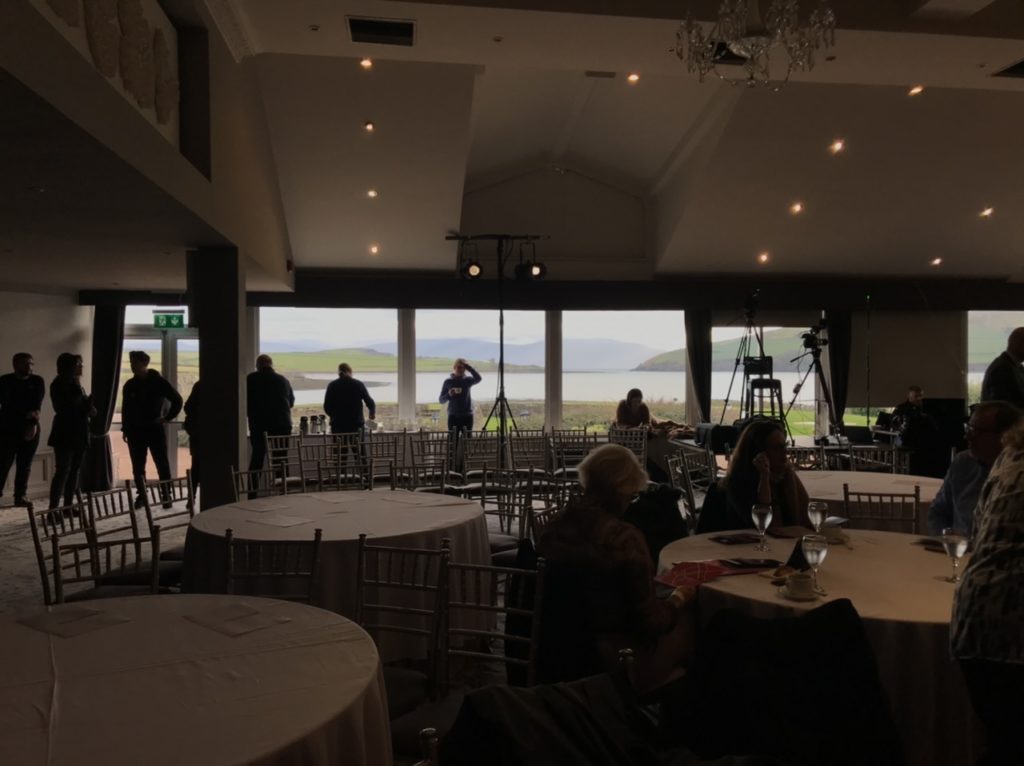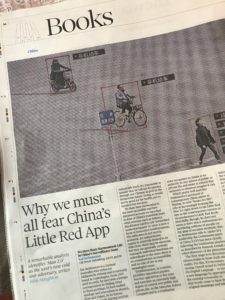This blog is now also available as a once-a-day email. If you think this might work better for you why not subscribe here? (It’s free and there’s a 1-click unsubscribe if you subsequently decide you need to prune your inbox!) One email a day, in your inbox at 07:00 every morning.
Why America is so bad at Covid-19.
It’s our attitude, there are never consequences for Americans. That’s for other people. We have wars and tax cuts at the same time. We don’t see the coffins of our returning dead. Nothing happens to us. We can’t imagine things not being normal. The generation that grew up during World War II, who experienced the Holocaust, the advent of nuclear weapons, that generation is gone now. Everyone alive today, not just boomers, have been spoiled. We’re all coming awake now from a life-long trance. For the first time in our lives, we have to deal with the mortality of our country. Don’t cry for America. It’s time to grow up, again. Couldn’t have a more perfect person as president. It’s easy to see he is our past. Now how do we move beyond that?
The Real Pandemic Danger Is Social Collapse
Branko Milanovic: “As the Global Economy Comes Apart, Societies May, Too”.
Sobering essay in Foreign Affairs. Sample:
The world faces the prospect of a profound shift: a return to natural—which is to say, self-sufficient—economy. That shift is the very opposite of globalization. While globalization entails a division of labor among disparate economies, a return to natural economy means that nations would move toward self-sufficiency. That movement is not inevitable. If national governments can control or overcome the current crisis within the next six months or a year, the world would likely return to the path of globalization, even if some of the assumptions that undergirded it (for example, very taut production chains with just-in-time deliveries) might have to be revised.
But if the crisis continues, globalization could unravel. The longer the crisis lasts, and the longer obstacles to the free flow of people, goods, and capital are in place, the more that state of affairs will come to seem normal. Special interests will form to sustain it, and the continuing fear of another epidemic may motivate calls for national self-sufficiency. In this sense, economic interests and legitimate health worries could dovetail. Even a seemingly small requirement—for instance, that everyone who enters a country needs to present, in addition to a passport and a visa, a health certificate—would constitute an obstacle to the return to the old globalized way, given how many millions of people would normally travel.
If de-globalisation does indeed start to happen, then that will produce — in Arnold Kling’s terms — “losers and bigger losers (it won’t produce many winners)”. What matters in a de-globalised world is how self-sufficient you are. Kling cites Peter Zeihan’s view that the U.S. is one of the few countries that produces enough food and energy for itself. China, on the other hand, needs to import both. That would lead one to predict that China will be in the “bigger loser” category.
Hmmmm…
Quarantine FM
My son Pete is a talented podcast producer. He’s currently hunkered down on his narrow boat in London and had the idea of creating something that would provide pleasure to people stuck in the self-isolation zone. This is the first episode. Subscribe using whatever you use to catch podcasts.
The last global crisis didn’t change the world. But this one could
Typically insightful essay by the incomparable Will Davies. He addresses a question that has always puzzled me, namely why the 2008 banking crisis didn’t provoke a radical rethink of how we run our societies. It did, of course, eventually produce a populist backlash against the ‘austerity’ imposed on ordinary citizens in order to ensure that banks would be rescued while no bankers went to gaol. But in most ways, the system continued as it had before, except with slightly better financed banks (outside of Italy, perhaps). So in that sense the 2008 cataclysm wasn’t a real crisis — i.e. an event that leads to structural and ideological change.
“The decade that shapes our contemporary imagination of crises”, he writes,
is the 1970s, which exemplified the way a historic rupture can set an economy and a society on a new path. This period marked the collapse of the postwar system of fixed exchange rates, capital controls and wage policies, which were perceived to have led to uncontrollable inflation. It also created the conditions in which the new right of Margaret Thatcher and Ronald Reagan could ride to the rescue, offering a novel medicine of tax cuts, interest rate hikes and attacks on organised labour.
Oddly, the 1970s inspired a vision of crisis as a wide-ranging shift in ideology, which has retained its hold over much of the left ever since.
For over 40 years after Thatcher first took office, many people on the left have waited impatiently for a successor to the 1970s, in the hope that a similar ideological transition might occur in reverse. But despite considerable upheaval and social pain, the global financial crisis of 2008 failed to provoke a fundamental shift in policy orthodoxy. In fact, after the initial burst of public spending that rescued the banks, the free-market Thatcherite worldview became even more dominant in Britain and the eurozone. The political upheavals of 2016 took aim at the status quo, but with little sense of a coherent alternative to it. But both these crises now appear as mere forerunners to the big one that emerged in Wuhan at the close of last year.
So the question now is whether COVID-19 is really a pivotal moment? Davies thinks that it might be.
Great essay. Worth reading in full.
Herd immunity redux
Remember the ‘herd immunity’ strategy for dealing with Coronavirus? That’s the strategy that was kyboshed by the Imperial College model. Well now a modelling team at Oxford is suggesting that the virus may already have infected far more people in the UK than scientists had previously estimated — perhaps as much as half the population — according to a report in yesterday’s Financial Times.
If the results are confirmed, they imply that fewer than one in a thousand of those infected with Covid-19 become ill enough to need hospital treatment, said Sunetra Gupta, professor of theoretical epidemiology, who led the study. The vast majority develop very mild symptoms or none at all.
The research, observes the FT,
presents a very different view of the epidemic to the modelling at Imperial College London, which has strongly influenced government policy. “I am surprised that there has been such unqualified acceptance of the Imperial model,” said Prof Gupta.
(Experts in the conventions of academic warfare will be able to decode that genteel observation.)
But Prof Gupta was reluctant to criticise the government for shutting down the country to suppress viral spread, because the accuracy of the Oxford model has not yet been confirmed and, even if it is correct, social distancing will still reduce the number of people becoming seriously ill and relieve severe pressure on the NHS during the peak of the epidemic.
Let the war of the models begin. We will only know the truth when the UK has a large-scale programme for testing in the population at large. At the moment we’re still flying blind.



